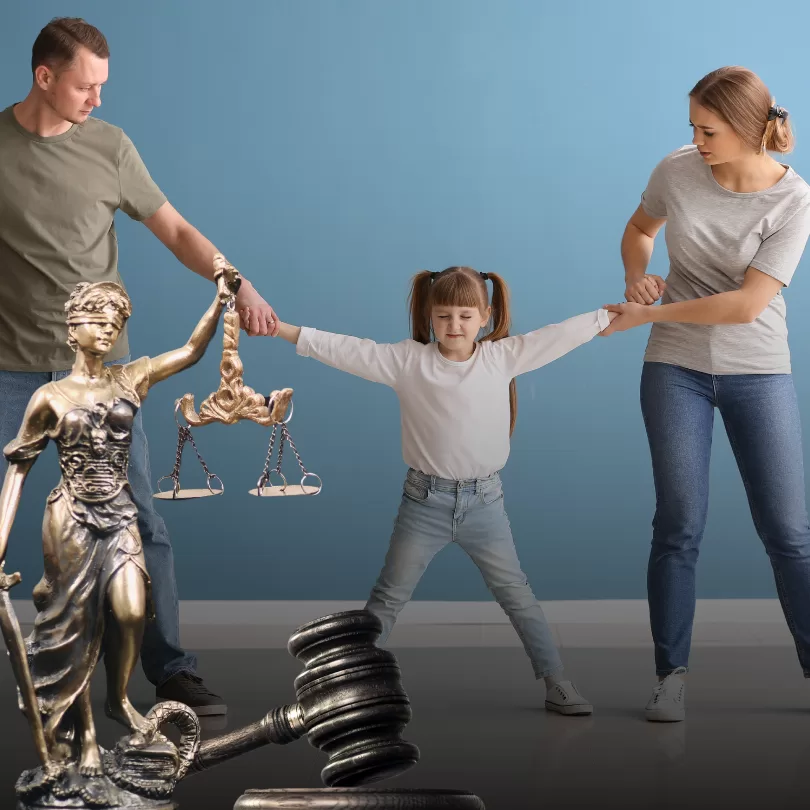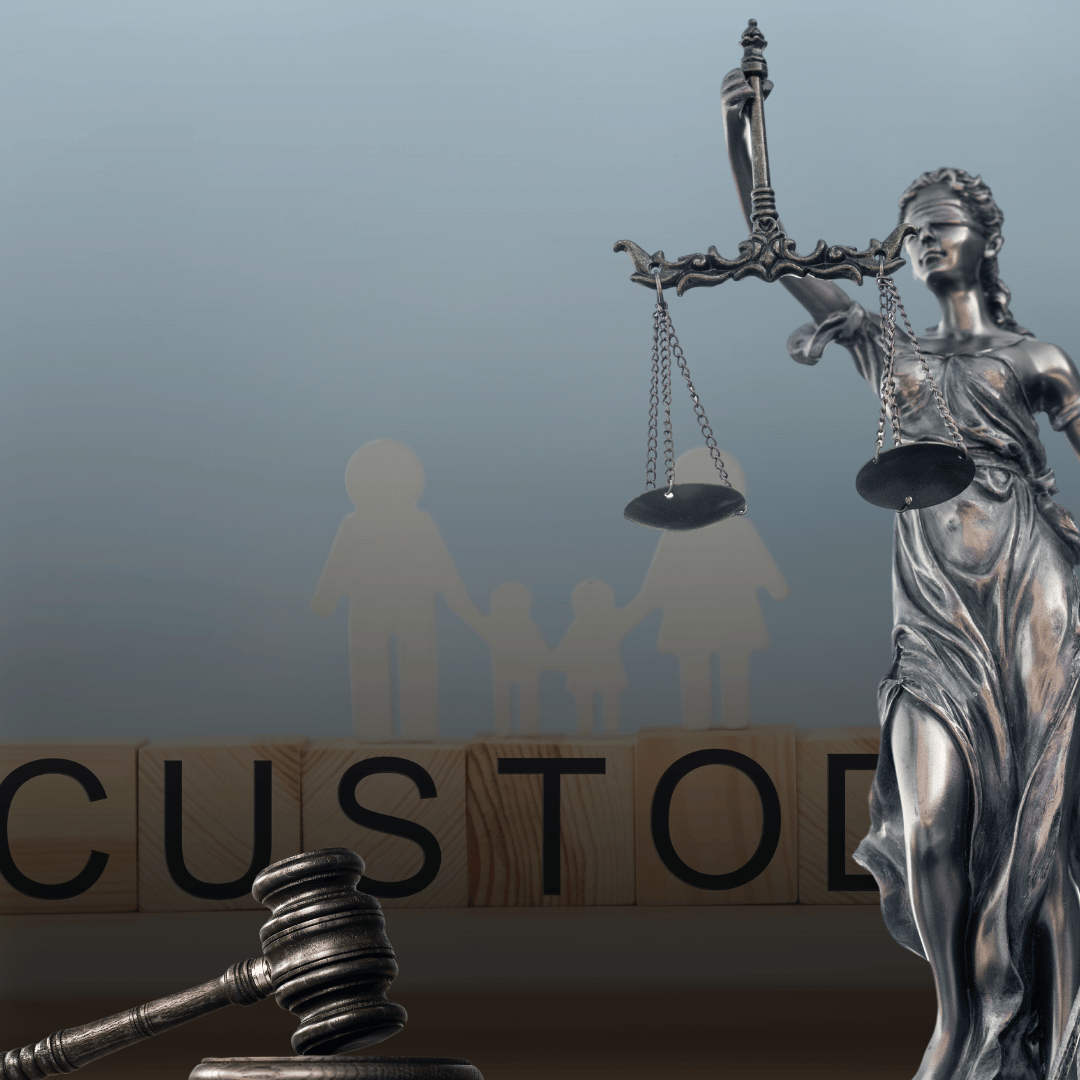If you’re navigating the challenging waters of legal custody in Maryland, you probably have a lot of questions, like what is legal custody and what it means for you and your child. As a child custody attorney in Maryland, I’m here to help you understand the ins and outs of it. Let’s break it down together.
What is Legal Custody in Maryland?
Legal custody is about decision-making. It refers to the right and responsibility to make major decisions regarding your child’s upbringing, like where they go to school, what healthcare they receive, and their religious upbringing. Think of it as having a say in the most important aspects of your child’s life.
What are the Types of Legal Custody in Maryland?
Sole Legal Custody: This means that one parent has the exclusive right to make all the major decisions for the child. If you’re the sole legal custodian, you won’t have to consult the other parent for decisions like where the child will attend school.
Joint Legal Custody: With joint legal custody, both parents share the decision-making responsibilities. This arrangement often requires good communication between parents, but it allows both to have a voice in their child’s life.
How Do Maryland Courts Determine Custody?
Maryland courts prioritize the best interests of the child. Factors considered include:
- The child’s age and maturity
- The parent’s ability to cooperate
- The parent’s ability to provide a stable and nurturing environment
- The child’s relationship with each parent
- The child’s adjustment to home, school, and community
- The child’s physical and mental health needs
- Domestic violence or abuse
What Documents are Needed to File for Legal Custody?
If you’re looking to file for legal custody, here are some key documents you’ll need:
- Complaint for Custody (CC-DR-004): This form initiates the legal process and outlines your request for custody.
- Affidavit Concerning Children (CC-DR-005): This provides detailed information about your child, including their name, date of birth, and school information.
- Proof of Service: This verifies that the other parent has been legally served with the necessary court documents.
Supporting Documents:
- Parenting Plan: A detailed plan outlining the proposed custody arrangement, including visitation schedules, decision-making responsibilities, and other relevant details.
- Financial Documents: This may include your tax returns or pay stubs to show your financial ability to care for the child.
- Medical Records: These can provide valuable context regarding your child’s needs and stability.
- School Records: School records, including report cards, attendance records, and any disciplinary actions.
- Evidence of Domestic Violence or Abuse: If applicable, any evidence of domestic violence, child abuse, or neglect, such as police reports or court orders.
How Legal Custody Affects Child Support Obligations in Maryland?
While legal custody doesn’t directly determine child support obligations, it can indirectly influence the amount and duration of payments. Here’s a breakdown:
- Shared Legal Custody: Parents share responsibilities, which might lead to a more balanced child support arrangement.
- Sole Legal Custody: If one parent has sole legal custody, the other parent may be required to pay higher child support.
What Are the Common Misconceptions About Legal Custody?
Let’s clear up some myths:
- Myth: Mothers Always Win Custody
- Truth: Courts make decisions based on what is in the best interests of the child, not on gender. Fathers can and do win custody.
- Myth: Custody Arrangements are Permanent
- Truth: Custody orders can be modified if significant changes occur, like a change in circumstances for either parent.
- Myth: Courts Can’t Require Mediation
- Truth: Courts often encourage mediation to help parents reach agreements.
What are the steps to obtain legal custody in Maryland?
If you’re ready to pursue legal custody, here’s a straightforward roadmap to follow:
- Determine the Right Court:
- File in the circuit court of the county where your child lives or where you or the other parent resides.
- Gather Your Documents:
- Prepare the necessary forms like the Complaint for Custody and the Affidavit Concerning Children.
- File Your Complaint:
- Submit your paperwork to the court clerk’s office and pay any applicable fees.
- Serve the Other Parent:
- Make sure the other parent receives the court documents legally.
- Attend Hearings:
- Be prepared to participate in hearings, mediation sessions, or possibly a trial.
How does legal custody affect child support in Maryland?
While legal custody does not directly determine child support obligations, it can indirectly influence the amount and duration of child support payments. Shared legal custody may lead to a more equal division of financial responsibilities, while sole legal custody may result in higher child support payments.
Can You Modify a Custody Order?
Yes! If there’s been a significant change in circumstances, you can ask the court to modify your custody order. This might happen if your child’s needs change or if there are shifts in your living situation.
Does Sole Legal Custody Terminate Parental Rights?
No, having sole legal custody doesn’t mean the other parent loses their parental rights. They still have the right to visitation and involvement in the child’s life, even if they don’t make the major decisions.
Is legal guardianship the same as custody?
No, legal guardianship is not the same as custody in Maryland.
While both involve legal authority over a child, they differ in key ways:
- Custody generally pertains to parental rights and responsibilities.
- Guardianship is often broader and can apply when a court appoints someone to care for a minor or incapacitated adult.
What is the difference between legal guardianship and custody?
While both legal guardianship and custody involve legal authority over a child, they are distinct concepts with different implications:
Custody:
- Parental Rights: Typically arise in family law matters involving parents.
- Scope of Authority: Grants parents the right to make major decisions about the child’s upbringing, including education, healthcare, and religion.
- Legal Process: Involves family court proceedings, often related to divorce or separation.
Guardianship:
- Non-Parental Authority: Grants legal authority to an individual who is not a parent to care for a child.
- Scope of Authority: This can vary but often involves making decisions about the child’s day-to-day care, health, and education.
- Legal Process: Requires a formal court proceeding to appoint a guardian.
Together, We’ll Find Your Custody Solutions
Navigating the complexities of child custody doesn’t have to feel overwhelming. At Divorce With A Plan, we understand that every family’s situation is unique, and we’re here to provide the personalized guidance you need during this challenging time.
Our experienced child custody lawyers are dedicated to helping you understand your options and finding the best solutions tailored to your family’s needs. Don’t hesitate to reach out—your peace of mind is our priority!
Call us today at (240) 269-3592 to schedule a consultation. Let’s work together to create a clear plan for you and your children’s future.






